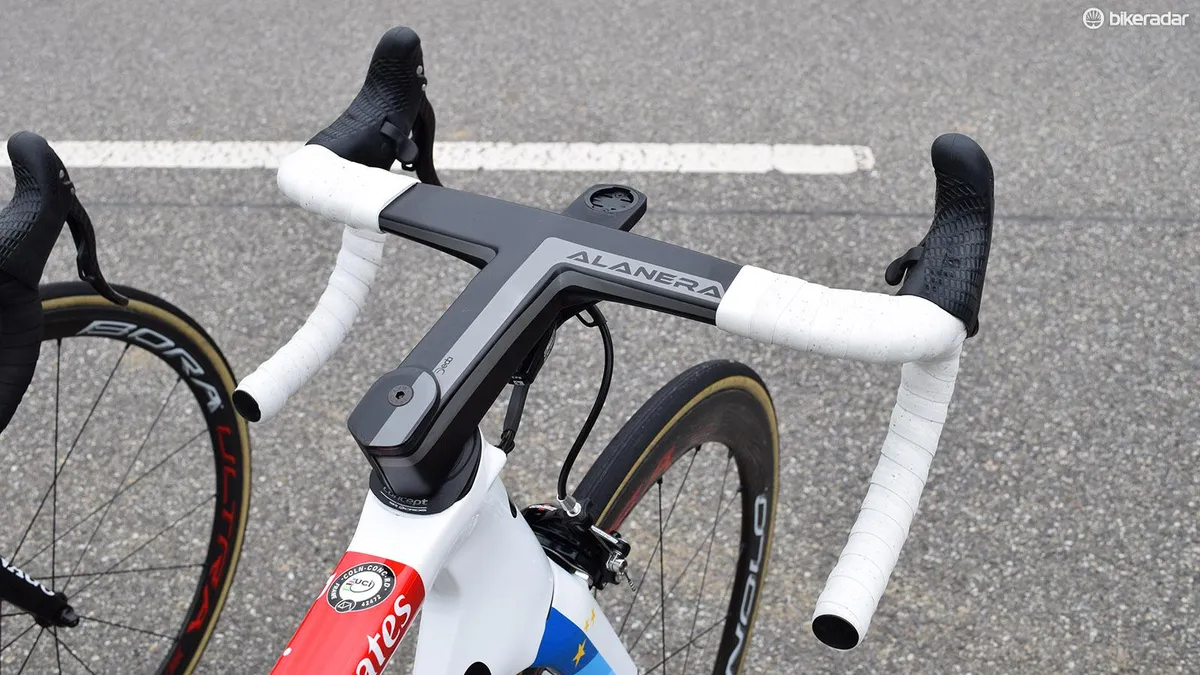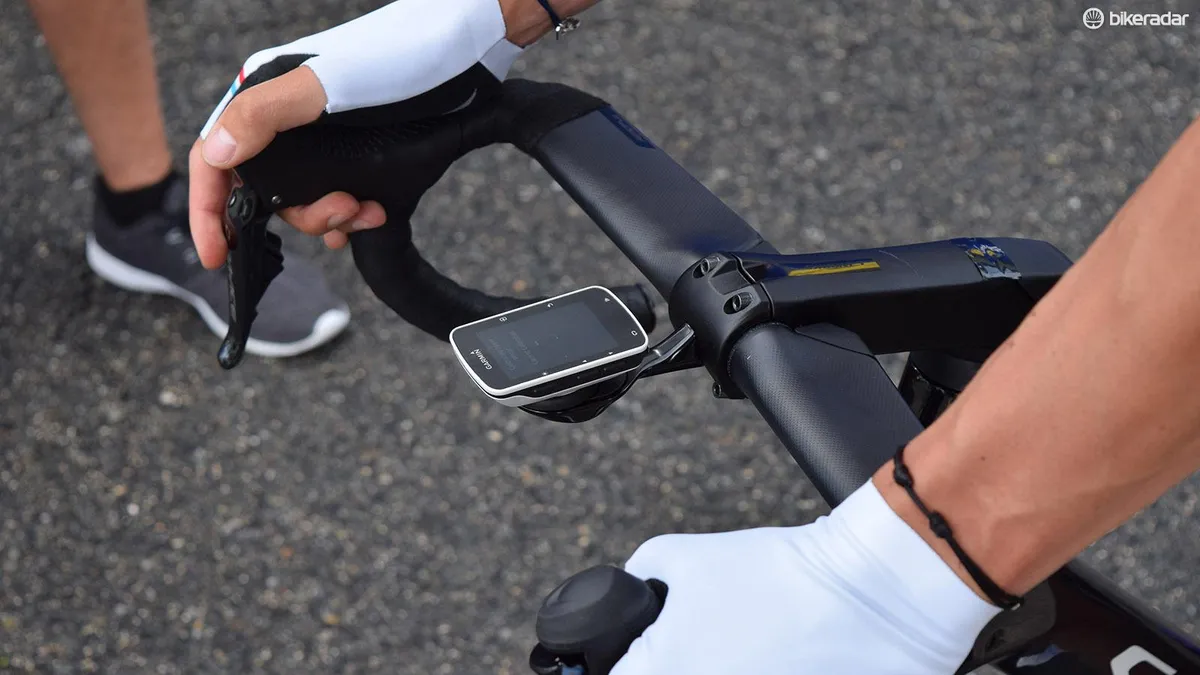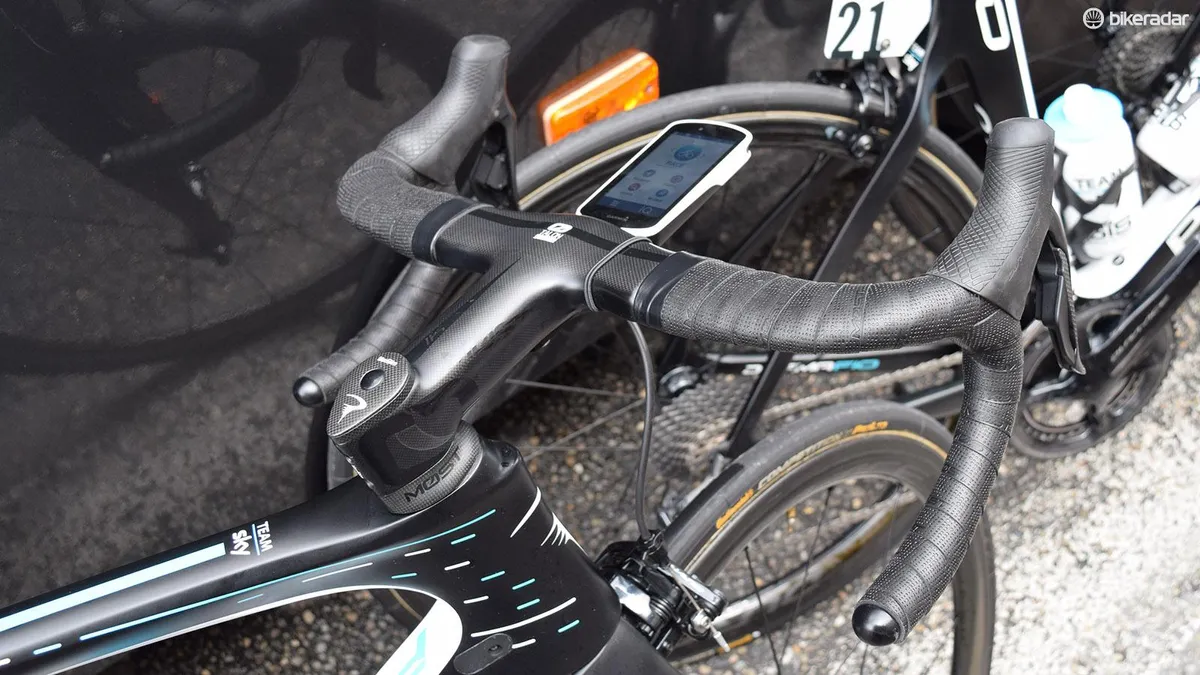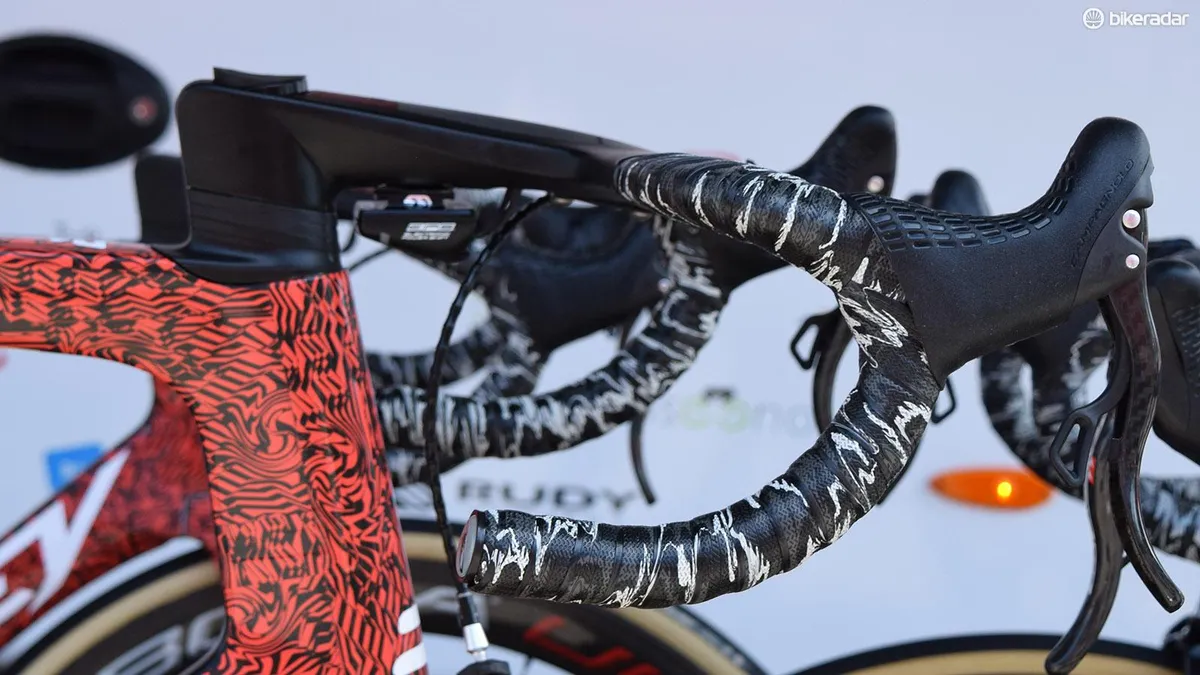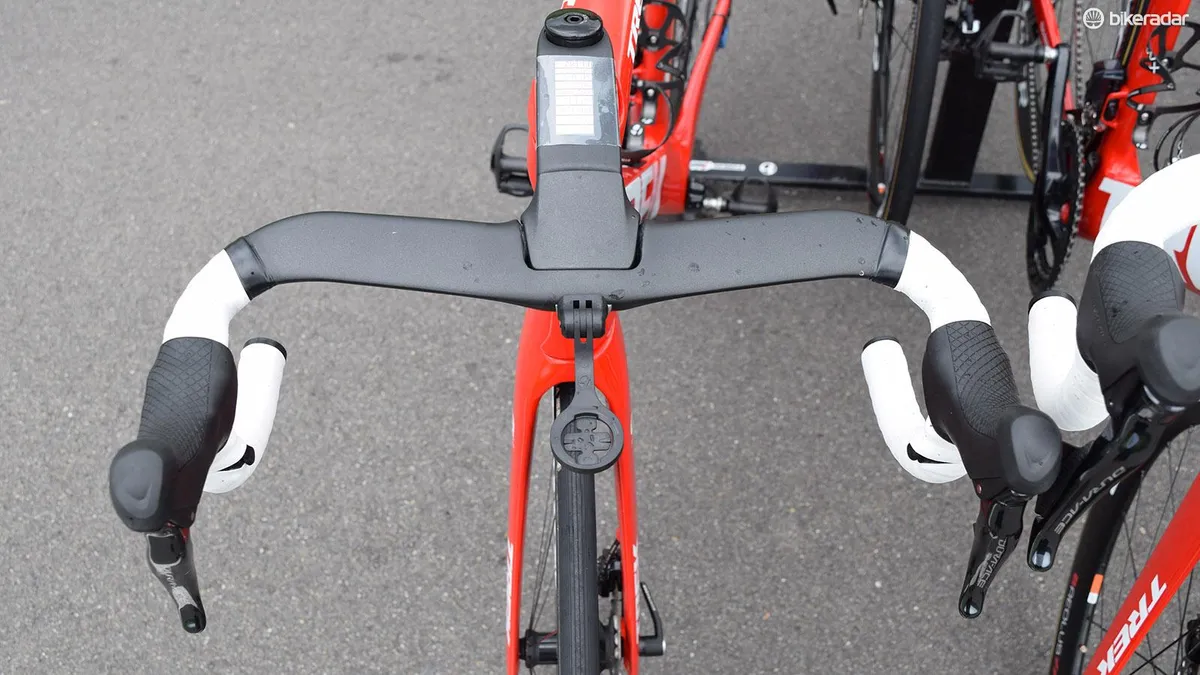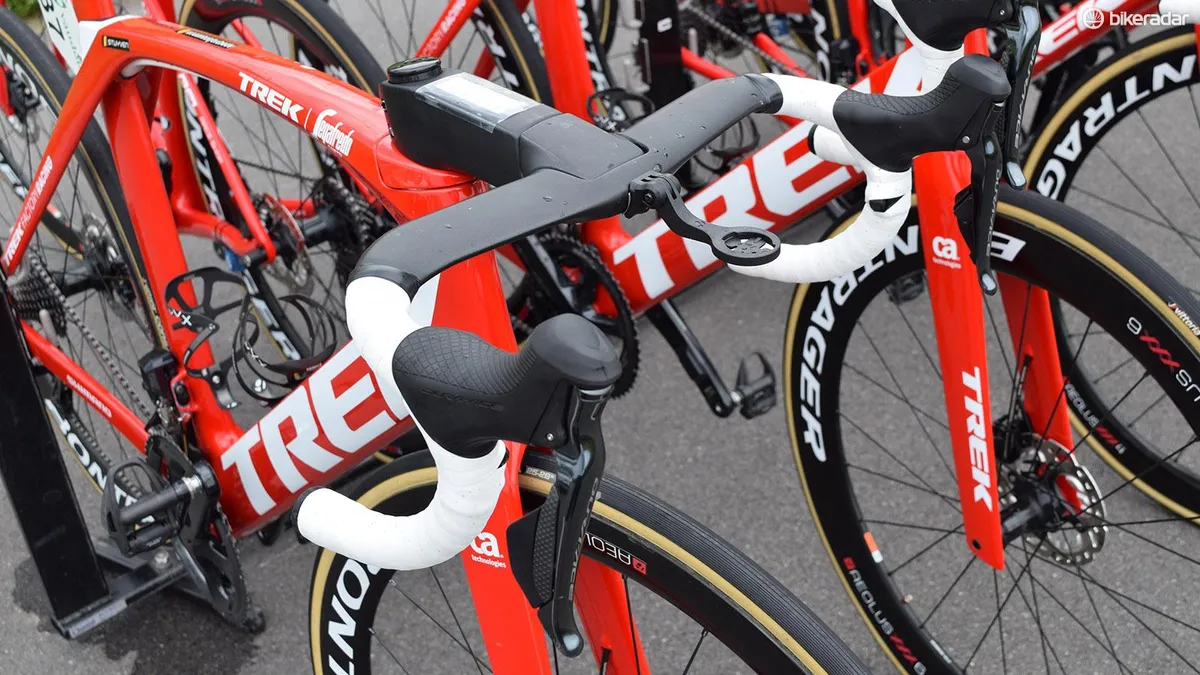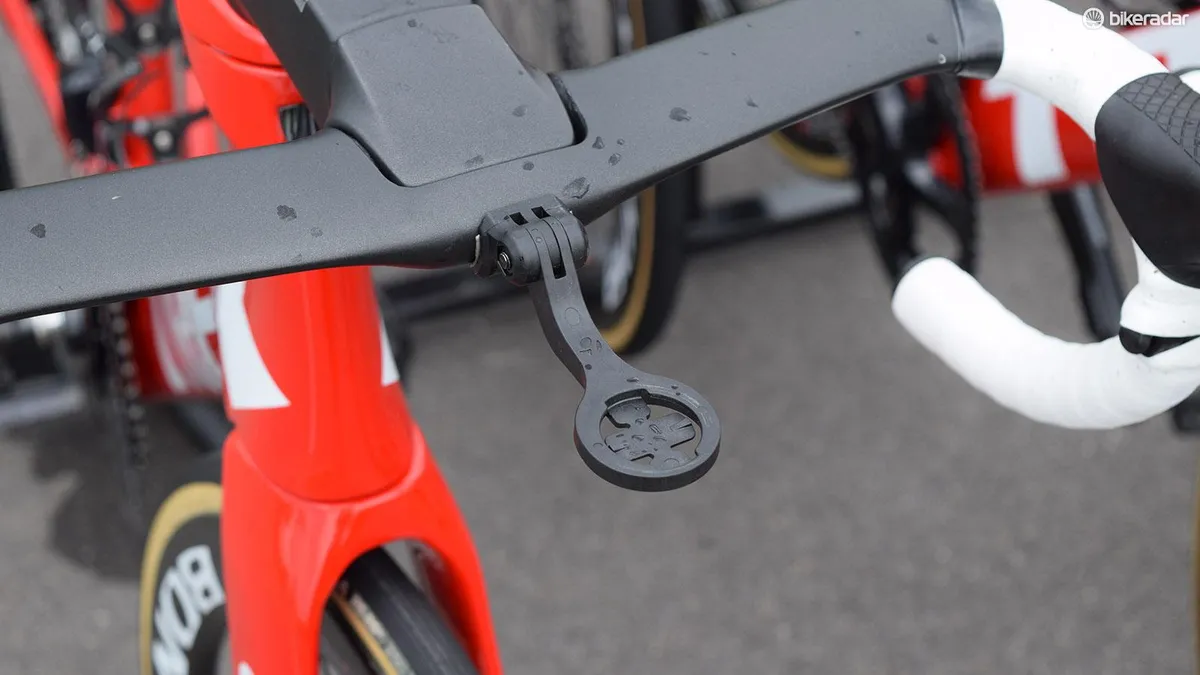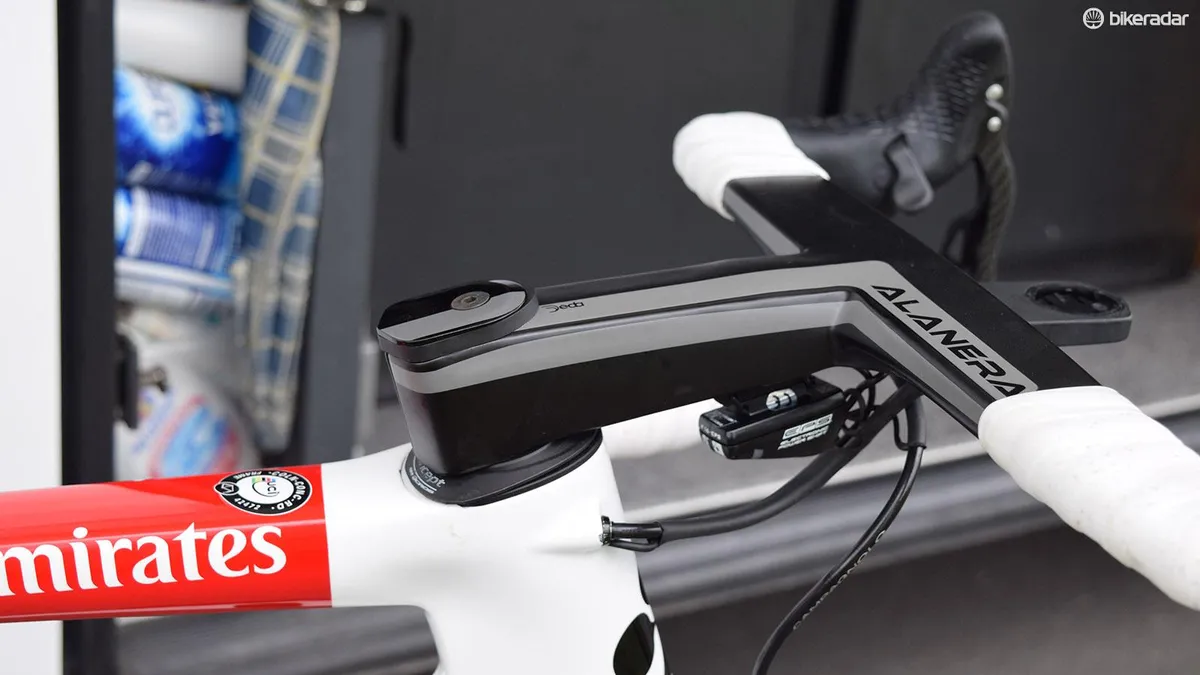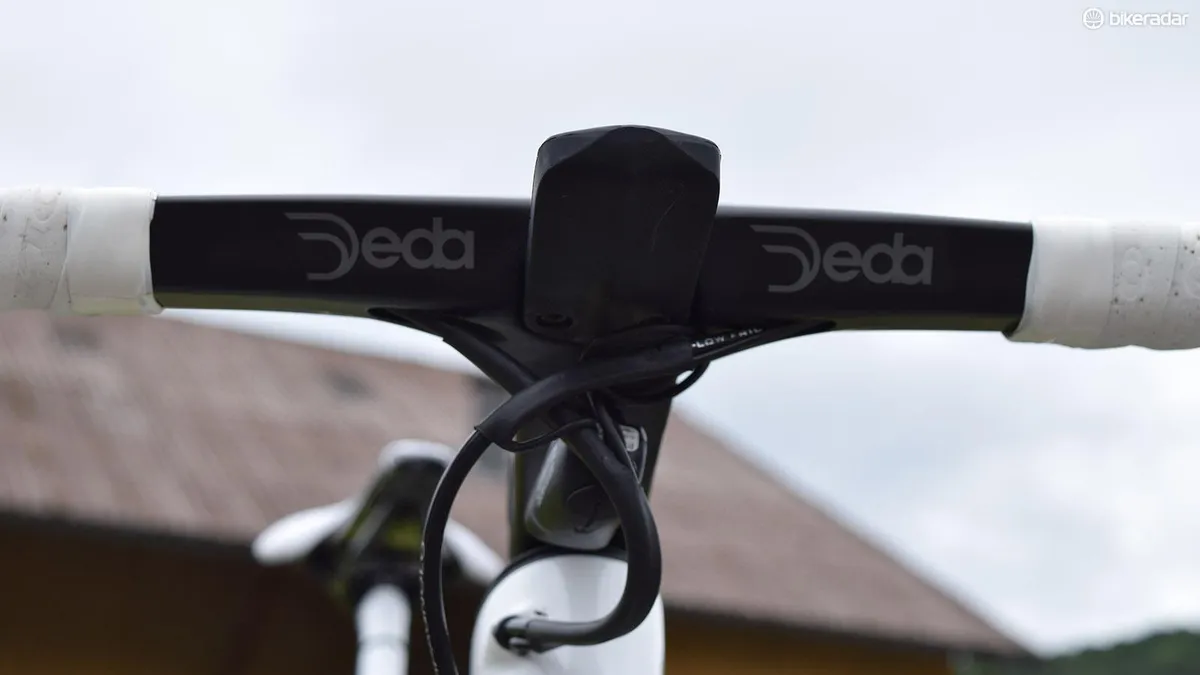This article first appeared on Cyclingnews.
The Criterium du Dauphine and Tour de Suisse offer riders a platform to improve and test their form ahead of next month's Tour de France.
The races also offer an opportunity to test the latest and unreleased tech in a race scenario ahead of manufacturers' launches that coincide with the biggest event on the cycling calendar.
Integrated carbon cockpits are not new technology, but alongside unseen aero framesets from Specialized, Trek and Ridley, the option for enhanced integration and improved aerodynamics has been embraced by the bike manufacturers, and newly designed cockpits are available to several WorldTour teams for the upcoming Tour de France.
Alongside the new framesets and components from the biggest bike manufacturers in the world, Italian components specialists Deda has also been busy producing the new Alanera — or Black Wing — cockpit system for Alexander Kristoff (UAE Team Emirates).
Aerodynamic performance is difficult to quantify without getting the components into a wind tunnel, but further integration and design features are more obvious at first glance.
Nearly all the new cockpit systems seen in the WorldTour peloton have opted for internal cable routing alongside offering the option of integrated computer mounts.
Specialized S-Works Aerofly handlebars and new stem system
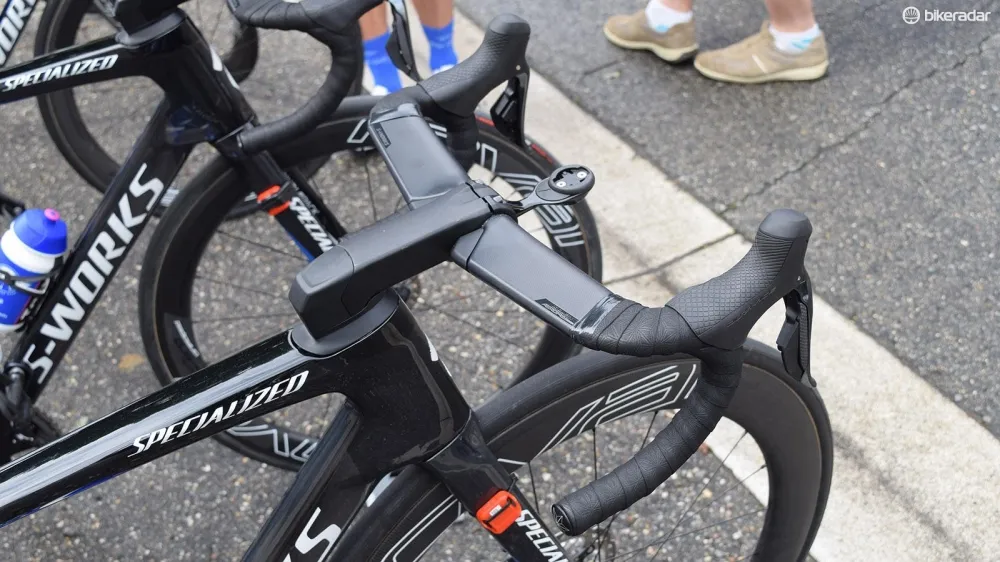
First spotted at the Criterium du Dauphine, and also being raced on at Tour de Suisse, an update to the S-Works Aerofly handlebars seems to coincide with the new Specialized disc brake aero bike, seen for the first time at the same races.
Maintaining the traditional aero handlebar design of flat tops, the handlebars appear to have a traditional circular cross-section at the centre for use with normal stems.
On the new Specialized, a frame-specific stem appears to be adopted and triangular inserts sit either side of this. It is likely these areas are where the internal cable routing from the levers exits the handlebars and enters into the stem for improved integration and aerodynamics.
The integration continues with the new Specialized aero cockpit, with the face plate of the stem offering an out-front computer mount. This is likely to be interchangeable for rider preference but is a considered design feature.
Trek Madone Disc aero handlebars and stem system
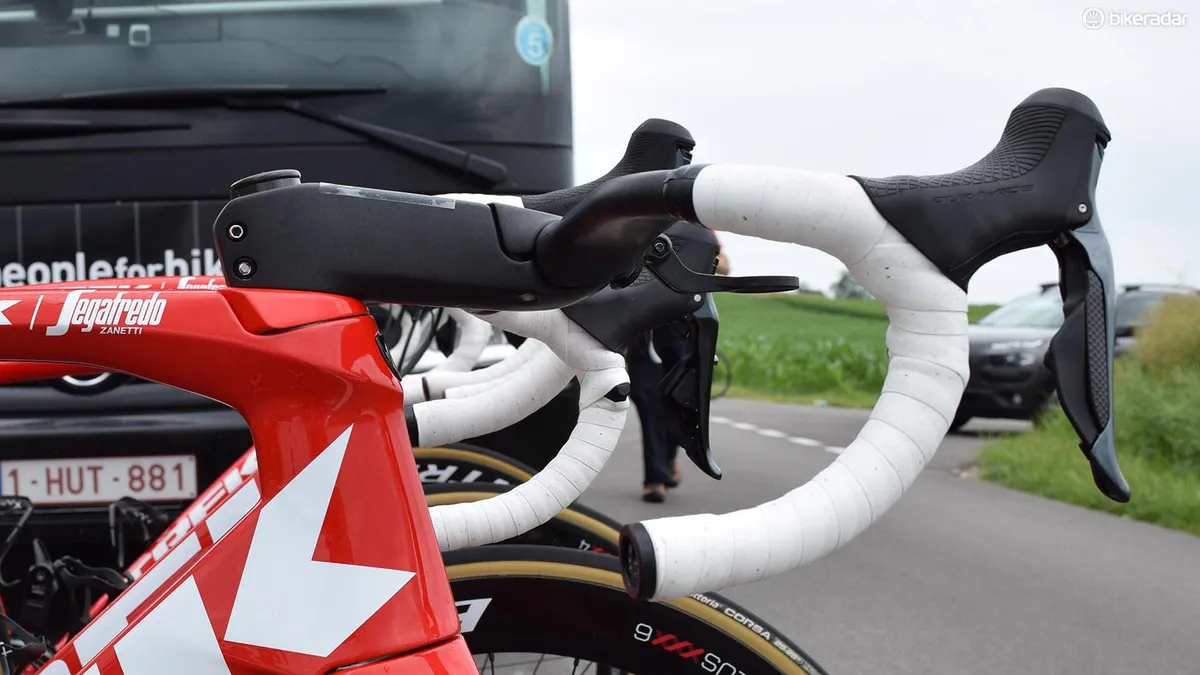
The Trek Madone Disc was also seen for the first time at the Criterium du Dauphine, and again is being raced at the Tour de Suisse by the Trek-Segafredo team.
Like the new aero frameset from Specialized, the Trek Madone Disc appears to have a frame-specific stem to house gear cabling and hydraulic brake hoses through internal routing into the frame.
However, instead of accommodating a traditional handlebar clamp, the Madone Disc cockpit looks to be a frame-specific — albeit possibly adjustable — handlebar to work in conjunction with the proprietary stem.
A two-bolt-on adjustable out-front computer mount also looks to be an option on the cockpit system.
Ridley Noah integrated cockpit system
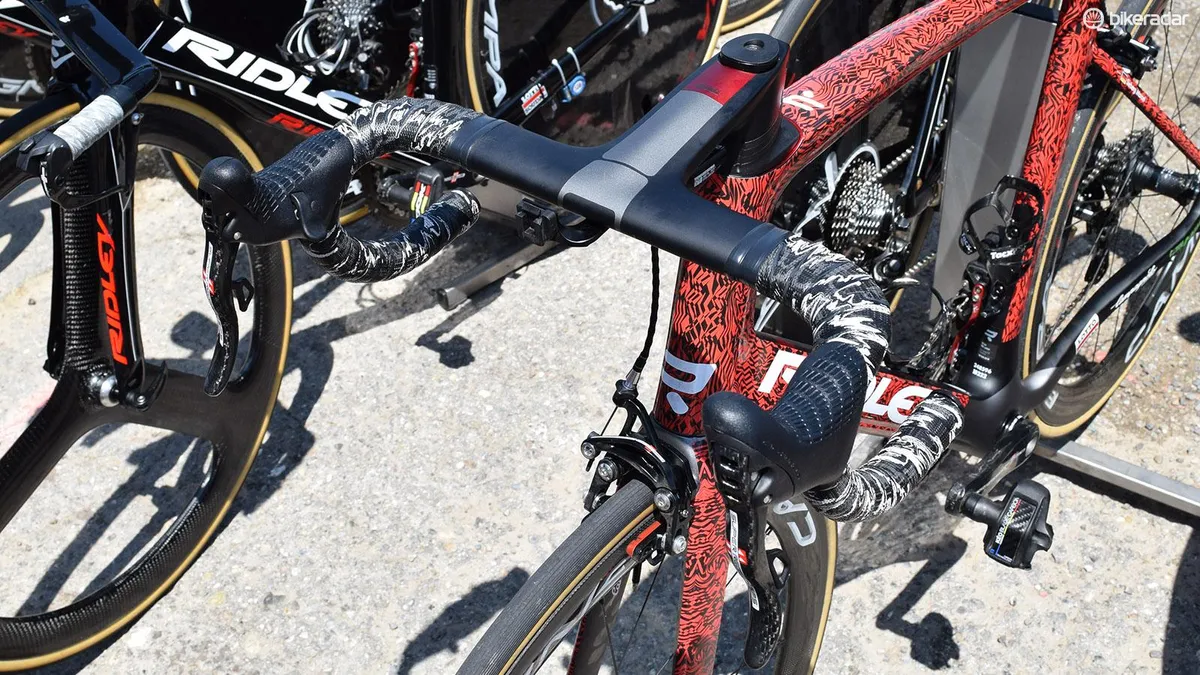
Details are few and far between on the new aero frameset from Ridley, and a plastic frame wrap masks any clues as to exact design details and features. However, key frame design features are mirrored from previous versions of the Ridley Noah frameset and it is likely this is an updated version.
The one-piece cockpit from Ridley is perhaps the most seamless design out of the three new aero framesets in terms of the frame to cockpit integration.
A headset cap looks to fill the hollow area at the top of the head tube and appears to allow the cockpit-specific spacers to turn as the bars do.
While a one-piece cockpit system lacks any option of adjustability, the aerodynamic performance is likely to be better.
Ridley is a stakeholder in the Flanders Bike Valley wind tunnel in Belgium and it would be no surprise if the cockpit system and frameset had undertaken extensive testing at the facility.
Deda Alanera integrated cockpit system
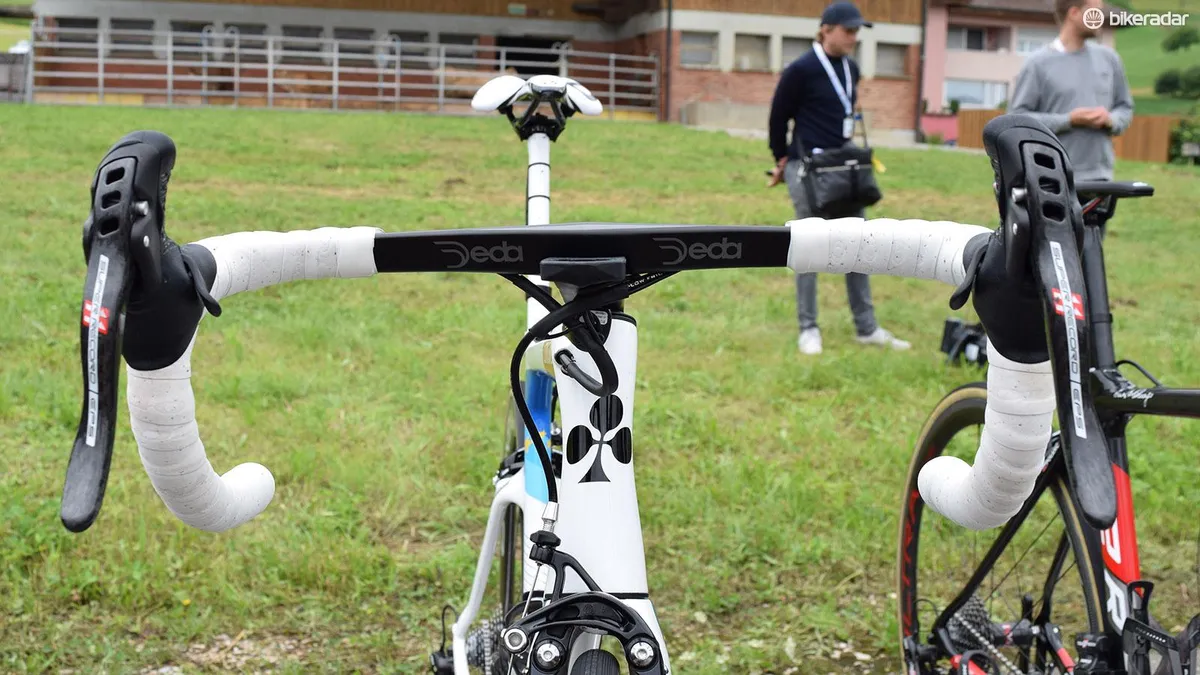
In a similar one-piece design as the Ridley cockpit, Italian components specialists Deda recently launched the Alanera carbon cockpit.
Available in nine different sizes, the cockpit has a claimed weight of 350g and also has the expected design features of internal cable routing, accommodation for Di2 junction boxes and the option of an out-front computer mount for Garmin or SRM.
Alexander Kristoff (UAE Team Emirates) is the only rider at Tour de Suisse to be using the new handlebars.
Other notable mentions
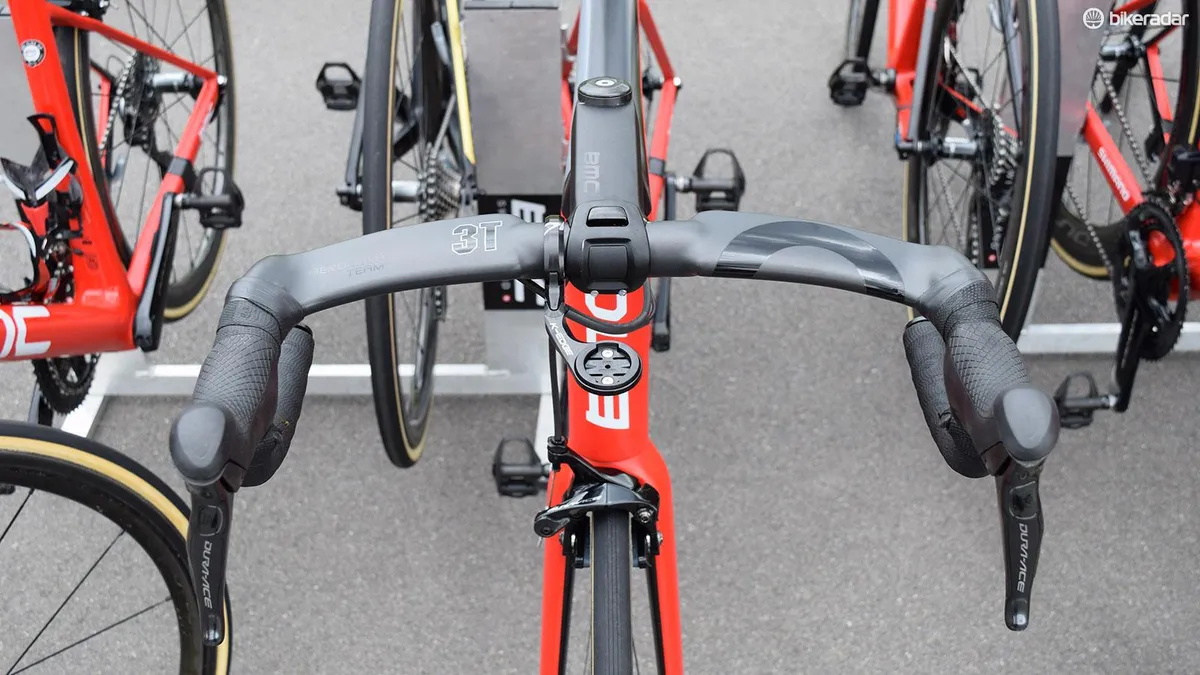
While the above components are the latest to arrive in the WorldTour peloton, integrated cockpit systems are used by riders from nearly every team.
For the 2018 season, Team Sky switches from PRO to MOST components, who offer the Talon integrated carbon cockpit and is used by a number of Team Sky riders.
Factor (AG2R La Mondiale) and Scott (Mitchelton-Scott) also use frame-specific cockpit systems, while Vision, PRO and 3T also offer aero options for an array of teams in the WorldTour.
